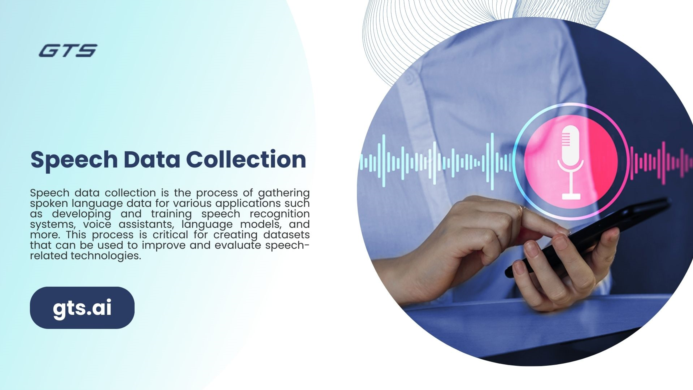Category: Technology

blog address: https://gts.ai/services/speech-data-collection/
blog details: In the rapidly evolving field of artificial intelligence (AI), speech data collection plays a vital role in enhancing natural language processing (NLP) systems. With voice-activated technologies becoming increasingly common in everyday devices, the demand for accurate and diverse speech data has skyrocketed. From virtual assistants like Siri and Alexa to automated customer service bots, these systems rely heavily on high-quality speech data to function effectively.
What is Speech Data Collection?
Speech data collection is the process of gathering audio recordings from various speakers, accents, dialects, and environments. This data is then used to train machine learning models that power speech recognition systems, making them more robust and capable of understanding different languages, accents, and tones. This collection process often involves real-world recordings, scripted prompts, or even synthetic audio generation in some cases.
Importance of Speech Data Collection
The effectiveness of any speech-based AI system depends largely on the diversity and quality of the data it is trained on. Here are some key benefits of speech data collection:
Enhanced Accuracy: The more data a model is trained on, the more accurate it becomes. Collecting diverse speech samples from different regions, languages, and demographics ensures that AI can understand and respond to various voices and accents with precision.
Language Expansion: With sufficient data collection, AI models can be trained to understand not only popular languages but also less commonly spoken ones. This broadens the scope of voice technologies, enabling more people around the world to use these systems in their native languages.
Improved Customer Interactions: In industries like customer service, voice-activated AI systems help handle a large volume of requests efficiently. Speech data collection enhances these systems by enabling them to respond naturally and contextually, improving user satisfaction.
Challenges in Speech Data Collection
Although speech data collection is essential, it comes with its own set of challenges:
Privacy and Security: Collecting audio data can raise privacy concerns. Organizations need to ensure compliance with data protection regulations like GDPR to safeguard personal information.
Diversity of Data: To build inclusive models, data collection needs to cover a wide range of demographics. However, gathering data from remote regions or less popular languages can be time-consuming and resource-intensive.
Environmental Variability: Speech recognition systems must be able to function in different environments (e.g., noisy streets vs. quiet offices). Collecting data across various soundscapes is necessary to create models that perform well in real-world scenarios.
The Future of Speech Data Collection
As AI technology advances, the demand for speech data collection will continue to grow. Innovative methods like crowdsourcing and synthetic speech generation are helping streamline the process. By leveraging large-scale speech datasets, AI developers can create more accurate, efficient, and accessible voice-activated technologies for a global audience.
In conclusion, speech data collection is foundational to the development of AI systems that can understand and process human speech. It ensures that voice technologies can serve diverse populations while driving innovation in various industries. As more organizations invest in speech data, the future of voice-activated AI looks promising and expansive.
keywords: Speech Data Collection
member since: Sep 10, 2024 | Viewed: 130


